Just as Thailand was trying to understand and cope with the implications on the new constitution that was approved at the recent nationwide referendum; it was hacked by perhaps the most apocalyptic event- sad demise of the revered king HRH Bhumibol Adulyadej. The late King was more than a constitutional monarch and head of the ruling Royal House of Chakri for the people of Thailand. He was considered as the ninth incarnation of Lord Rama, the highest upholder cum symbolic focus of Thai Buddhist loyalty who invoked tremendous awe and deep reverence of his subjects in the entire Thai society. Since his reign began in 1946, he was the unequivocal authority around whom all elements of the country rallied in times of crisis.
Against the backdrop of king’s deteriorating health, there was a feeling of unease and uncertainty under the surface of the current military backed government. Since the king was the de-facto linchpin of stability throughout the modern Thai history, his departure was bound to create a void that would be impossible to fill. Thus the government was desperately searching for some mechanism that may equip the country to face probable politico-social challenge as the country prepares itself for a major transition in the history of its constitutional monarchy. Therefore, it is argued that it was imperative to put in place a politico-legal system through a new constitution where the constitution itself can act as an anchor of stability in the absence of the wise counsels of the King.
Thus Thailand, on August 8, 2016 had voted in a country-wide referendum on a yet new constitution formulated by its military backed government, headed by Prime Minister Prayut Chan-o-cha. Voters were asked two questions requiring answers in yes or no. The questions were-
- Do you accept the new constitution?
- Should the upper house of parliament be permitted to join lower house in selecting the Prime Minister?
Of the total voter turnout of 59.4 percent, 61.3 percent people voted in favour of new constitution and 58 percent have answered the second question in affirmation, thereby, in effect, turning Thailand into a ‘semi-democracy’ with tighter institutionalized role for the military to dominate politics and governance alike.
With this, the Royal Kingdom of Thailand gets its 20th Constitution over the last 84 years since it turned into a constitutional Monarchy in 1932. With the all-powerful military repeatedly resorting to coupes, abrogating constitution, proclaiming new ones and holding fresh elections (25 of them in 84 years), Thailand is nowhere near any recognizable model of democracy in the contemporary world. The last constitution was abrogated following the military coupe of 2006 and the country was being governed under an Interim Constitution of 2014. This will now give way to the new document approved through the referendum.
Military’s Role in Thai Politics
Military is seen as an important element in nation building process throughout the history of modern Thailand. This is the case in most of the Southeast Asian countries, be it Indonesia or Myanmar, where military wants to have some stake. Hence military’s greater involvement might appear unconventional to Western eyes but it is not unusual for the Thai society. Thai military has over the years given itself the role of protector of the nation and the Royalty. It genuinely believes that peace and prosperity in the kingdom can only be ensured by its active and abiding involvement in the affairs of the state. Similarly, it has a long history of staging coups in the country since 1932. According to one count, over the last 84 years of the history of modern Thailand is credited with having successfully over thrown the governments of the day on as many as 15 occasions and 6 failed attempts. The last one was in 2014 when the then elected government of Yingluck Shinawatra was dethroned. However, according to former Indian Ambassador to Thailand, Vivek Katju; it would be wrong to perceive Thai military through the prism of its Pakistani counterpart that operates as an independent entity at the behest of the civilian government. In Thailand, military is a part of a system around the palace; and it is a military-monarchy complex. And it struck back when Thaksin Shinawatra, the hugely popular elected PM tried to intervene in military. Hence although Thaksinites have won every election since 2001, they have been overthrown with the backing of military- Thaksin himself in 2006 and his sister Yingluck, as mentioned above, in 2014 respectively.
Controversial Provisions in the Draft Constitution
To achieve this objective, a number of seemingly controversial provisions have been incorporated in the new constitution as enumerated below:-
- The upper house of the senate will be a fully appointed house by the establishment, which is currently headed by former army officer. And since referendum has approved upper house’s involvement in selection of PM, it will in turn entrench military’s influence in choosing the PM.
- Also under the new constitution, PM is not required to be member of the parliament and can be an unelected outsider, which again paves way for military officials to rise to that post.
- Strangely, the constitution begins with the following paragraph in the Preamble, “To the people, who ignored or disobeyed administrative values, corrupted or distorted power etc.” This clearly points at the political class and that is the prominent reason, among many others, as to why major political parties rejected this constitution -because they were not consulted.
- >Further, in order to encourage factionalism among anti-military political parties, constitution has inserted section 88 that says a party can nominate up to three Presidential candidates. This is a move meant to divide political parties and thus strengthen military’s grip over polity.
Opposition to the Constitution
But the political opponents of the military and members of the enlightened civil society may not be as charitable towards the military. Also in all the probability, majority of Thai people will continue voting for Thaksin’s Pheu Thai Party in any free and fair election. That is why military is seeking to retain its control in the event of such victory through the upper house, where the nominated members along with six military members will have a say in selecting the PM. Thus the constitution is engineered in such a way that Thaksinites can be kept at bay. Thaksin supporters label this process as ‘farce and undemocratic’. In fact, Thaksinites were the principal force behind the 39 percent ‘no’ vote in the referendum. This is bound to deepen the divide between ‘red shirts’ and ‘yellow shirts’.
Critics also argue that the new constitution has been deliberately designed to produce weak coalition government in the future which will be guided by independent commissions stacked with allies of Armed Forces. Constitution has made it difficult for any single party to emerge to the power as it seeks fragmentation in vote, so that parliament can be controlled by military.
Military is well aware of two developments. First, that Thaksinites’ core vote bank will not wither away come what may. Second, any foreseeable split within those political parties which are supporting military can go against military’s interest (this is with reference to probable split in Democrat Party into a faction led by Abhisit Vejjajiva). That is why military’s first line of defence is to try to manage the matter so that no party gets the majority in the lower house.
Implications of New Constitution Post King’s Demise:
Now that the king’s benign and reassuring presence and unifying influence will not be available, there is a genuine sense of unease and uncertainty of future shape of socio-political affairs. Vicissitudes of events can cast following implications for Thai polity and society:
The immediate implication is the extent to which the king’s successor, Crown Prince Maha Vijiralongkorn, will command popular and elite loyalty. The prospects are not good in view of his past reputation, although it is not openly discussed in the Thai society due to stringent ‘lese majeste’ laws that criminalizes defamation of the Royal House in any form. Further, his earlier ‘cordial’ equation with Thaksin could be another cause of worry for the military. Under the circumstances, both palace and the military will have to learn to coexist as Vijiralongkorn still remains the preferred choice of military over learned and vastly popular princess Maha Chakri. Military has already made a provision in constitution to secure its edge in the polity by inserting a clause that, in the event a designated heir apparent has not assumed the throne, the head of the ‘Privy Council’ – a set of personal advisors to the king – must be made regent. Thus, as of now, the 96-year-old Gen. Prem Tinsulanonda has assumed regency over Thailand’s empty throne till the coronation of crown prince which can take place only after the extended period of mourning.
Thai society has already been troubled by series of coups, regime changes and political instability. That must be the reason why Thais have voted in favour of this unconventional, military backed draft constitution, as it provides promise of that much sought for stability. At least the constitution is promising new election. Also, permeation of military in politics is not something new or unknown to the Thais.
The new constitution has gone far enough to assuage separatist tendencies in the wake of continued disturbances in the Thai-Malaysian Muslim communities of southern districts, namely Pattani, Yala and Narathiwat. But given the momentum generated by the insurgency, it is unlikely for them to dissipate just because of new constitution.
Constitution has guaranteed election which is tentatively scheduled for November 2017. But now in the changed circumstance presented by the unfortunate demise of the king, the military might even have to postpone the promised election unless it can satisfactorily work out all the elements including the required changes in the related laws and procedures of governance.
Conclusion
The succession and its constitutional fall out are likely to provide for unstable times in Thailand. As for the new constitution intended to provide a stabilizing effect, notwithstanding its criticism, the fact remains that majority of people have voted and once the result is out, it has to be accepted. Further, the Prime Minister was absolutely clear about maintaining military’s high hand even before the referendum, when he quipped that he would write another constitution for himself if this one is not passed. As Ian Bremmer observes, ‘the referendum has bought Thailand some time and stability in the short term, but if Thai history is any indication, no one should get too comfortable.’
In such volatile/rocky times when imminent future seems hazy, all sections of Thai society are required to rise above fissiparous tendencies and vested interest to act upon the important and immortal message of the late king, “The will to work of everyone in the country is the best guarantee of national survival”. Following this message of the late King would be the true tribute to their beloved leader.
(Based on Media reports and author’s Assessment)
Published Date: 17th October 2016, Image Source: http://qz.com
(Disclaimer: The views and opinions expressed in this article are those of the author and do not necessarily reflect the official policy or position of the Vivekananda International Foundation)

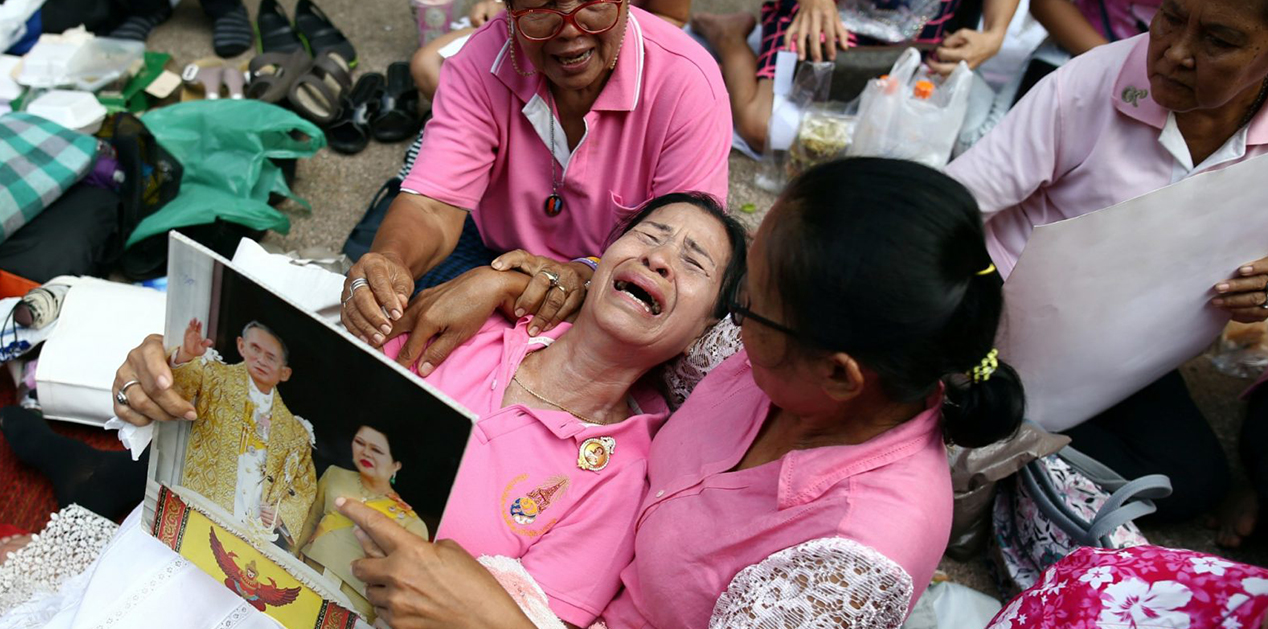


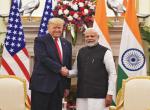
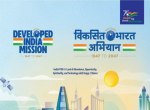
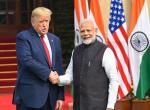

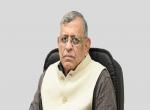


Post new comment